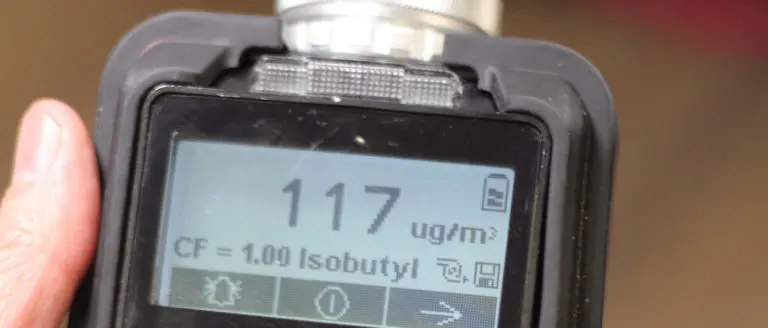Soap VOC Testing for Safety
The presence of volatile organic compounds (VOCs) in soap can have significant implications on health and environmental safety. This service offers comprehensive testing to ensure that soaps meet stringent safety standards, thereby protecting the consumers and the environment. Understanding the nature and impact of VOCs in personal care products is critical for quality managers, compliance officers, R&D engineers, and procurement teams.
VOCs are a category of organic chemical compounds characterized by their high vapor pressure and low boiling point. They can easily evaporate at room temperature, making them readily available to the human respiratory system. Common examples include benzene, toluene, ethylbenzene, xylene isomers, formaldehyde, and acetone.
These compounds are widely used in a variety of products such as cleaning agents, paints, varnishes, adhesives, and personal care items like soaps. The primary concern with VOCs is their potential to cause respiratory issues, irritation, and other health problems when present in high concentrations.
In the context of soap testing, it's essential to identify and quantify these compounds accurately. This ensures that the product remains safe for use by consumers while also meeting regulatory standards set forth by various governmental bodies.
Our testing service adheres strictly to international standards such as ISO 16007-2:2003 and ASTM D5984, which provide precise methodologies for the analysis of VOCs in liquid products. By using these standardized protocols, we ensure that our results are reliable and can be trusted across industries.
The process begins with thorough sampling of the soap specimen, followed by extraction techniques such as headspace solid-phase microextraction (HS-SPME) or solvent-based methods. Once extracted, the samples undergo gas chromatography-mass spectrometry (GC-MS), which allows for accurate identification and quantification of individual VOCs.
After completing the analysis, our expert team provides detailed reports outlining all detected compounds along with their respective concentrations. This information helps manufacturers make informed decisions about ingredient selection and formulation adjustments to comply with safety guidelines.
The importance of this service cannot be overstated given its role in safeguarding public health and compliance with regulatory requirements. By offering reliable VOC testing services, we empower businesses to produce safer products that meet both consumer expectations and legal mandates.
Applied Standards
Our soap VOC testing adheres strictly to the following international standards:
| Standard Name | Description |
|---|---|
| ISO 16007-2:2003 | Gas Chromatography-Mass Spectrometry (GC-MS) Method for Determination of Volatile Organic Compounds in Liquid Products |
| ASTM D5984 | Standard Test Method for Volatile Organic Compound Content by Head Space Gas Chromatography |
These standards ensure that our testing methodologies are consistent with industry best practices and regulatory expectations, providing clients with accurate and reliable results.
Scope and Methodology
| Test Parameters | Description |
|---|---|
| Sample Preparation | The soap sample is prepared by cutting it into small pieces, grinding them to a fine powder, and then extracting the VOCs using either headspace solid-phase microextraction or solvent-based methods. |
| Analytical Methodology | The extracted VOCs are analyzed via gas chromatography-mass spectrometry (GC-MS), which provides high-resolution separation and identification of individual compounds. |
| Acceptance Criteria | The maximum allowable concentration for each detected compound must comply with relevant regulatory limits, such as those specified in the EU Cosmetics Regulation or TSCA rules. |
This comprehensive approach ensures that all potential VOCs are identified and quantified accurately, allowing us to provide precise data for our clients' decision-making processes.
Eurolab Advantages
At Eurolab, we pride ourselves on delivering high-quality, reliable testing services tailored specifically to meet your unique needs. Here are some key advantages:
- Expertise in Analytical Chemistry: Our team consists of highly skilled chemists who specialize in the analysis of complex organic compounds.
- State-of-the-Art Facilities: Equipped with cutting-edge GC-MS equipment, our laboratories offer unparalleled accuracy and precision.
- Comprehensive Reporting: Detailed reports are provided summarizing all findings along with recommendations for improvement where necessary.
- Rapid Turnaround Times: We understand the importance of timely results; therefore, we strive to complete analyses within industry-standard timelines.
- Compliance with Regulatory Requirements: All tests conducted follow established guidelines ensuring compliance with local and international regulations.
- Custom Solutions: Whether you need routine testing or one-off assessments, our flexible approach accommodates diverse client requirements.
By leveraging these strengths, Eurolab ensures that your business receives the best possible support in maintaining product safety standards.





